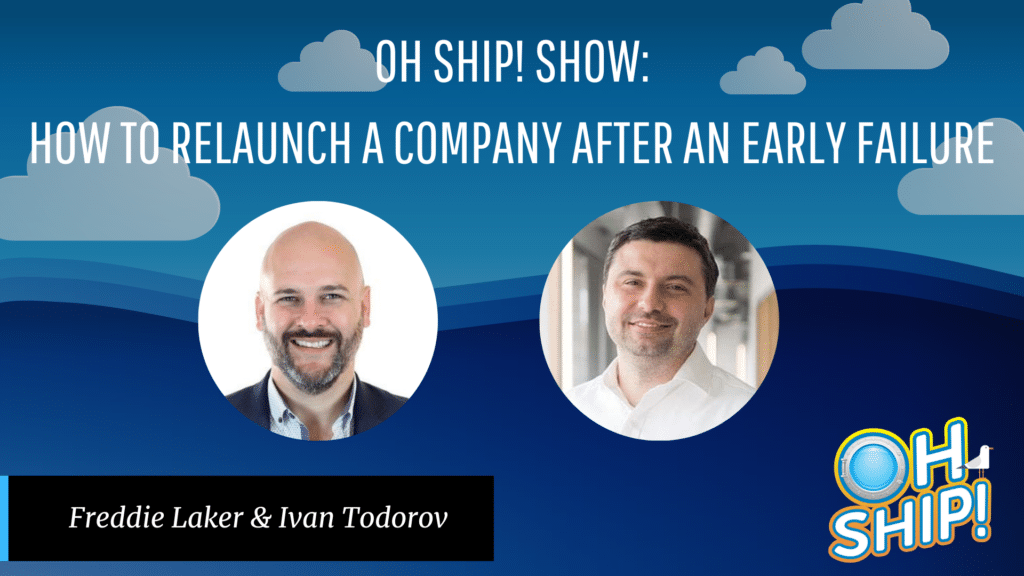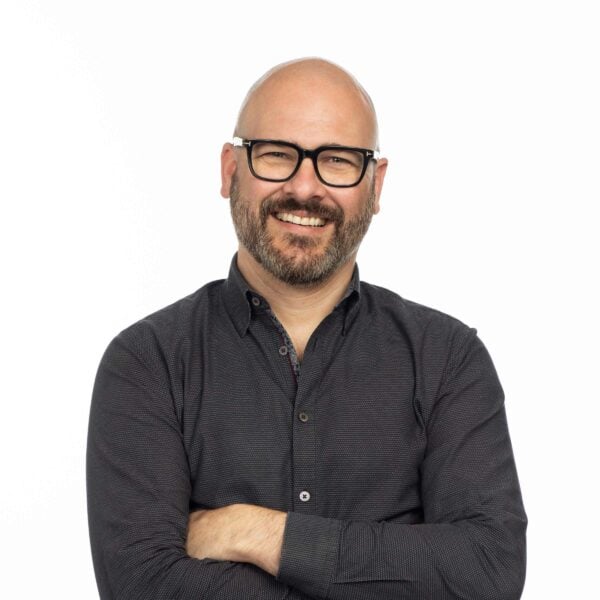Ivan tells us how he relaunched his company after an early failure.
Ivan Todorov, a serial entrepreneur, has learned a few lessons about recovering from tough times. He got his start in the dotcom era in college, and while his career had a rocky beginning, he has since built the successful BLITZ Agency and a couple of other mobile app startups. He now runs a nonprofit called Universal Future, which deals with AI and social issues. Let’s dive into some of the lessons he learned along the way that brought him to where he is now.
Ivan’s first big failure
At just 19, shortly after entering college, Ivan started his first business—an early interactive CD-ROM company. In 1997, the dotcom boom was in full swing, and he and his roommate decided to get in on the action together.
“When you’re 18 or 19, and you start a company with your roommate, you don’t know what you don’t know,” he says. This was in the Silicon Valley days, and everyone else was building up holding companies with other organizations beneath their umbrella. So, he and his roommate set up a holding company, and underneath it, an interactive agency and a company called Design Freak, which sold software for designers. They focused on the interactive agency side while partners handled Design Freak.
Being so hands-off soon proved a huge mistake. Seven months down the road, they found that their partners had spent the $5 million that they’d raised for them. “They had signed long-term leases with a whole bunch of hosting companies for all the imaginary millions of people who were going to come to this website, under the premise that we were going to secure a second round of funding,” Ivan says.
With the dotcom bust, no second round came.
It got worse: They found out that all of the leases were signed on behalf of the holding company, not Design Freak. Overnight, they became insolvent. Ivan and his roommate realized, “We have to file for bankruptcy; there is no way out,” he says. “We should have managed our partners and been paying attention to the financials.”
In 2001, they had to tell their 70 employees that they were closing up shop, moving to LA, and rebooting the company. “We invited everyone who was willing to pack up their bags to come with us, and 30 out of the 70 people signed up,” Ivan says.
At that young age, it was hard to fully grasp the repercussions that losing a job can have on people’s lives. Nonetheless, delivering such heavy news to the people he was leading made a lasting impression. In 2008, the company would opt to make no profits and keep as many people on board as possible to weather the storm. “If you can sustain the downturns of the economy, you come out stronger on the other end by retaining your talent,” Ivan says. “You have the capacity to pick up new projects and leapfrog your competition.” Putting employees first is well worth it—a lesson that today’s leaders would be well advised to internalize.
Right now, empathy is flowing in all directions in organizations; employees are often not just disappointed for themselves but for their employers as well. Many companies are like family, trying to help each other through these tough times, Freddie notes. And those employers who put their people first will come out ahead.
Entering the big leagues
In LA, they got the cheapest offices they could find in North Hollywood. The type with a massage parlor above a 7-11, says Ivan. There were little kids running around noisily all the time and a guy shooting up in the second-floor bathroom.
Then, someone from General Electric reached out, saying they liked their work. One of the most creative agencies in the business was doing the traditional work, and GE wanted Ivan’s agency to bid on the digital. In those days, there weren’t yet many top-notch firms in the field, and super young people were the digital natives and early adopters, as Freddie notes. Thus, it was surprisingly easy to get a big company’s ear.
They worked day and night to craft an idea, and they won the bid. The email they received ended with, “I’ll be over there tomorrow to meet you guys in person.”
A GE executive in a suit and tie came in, wondering if he was in the right place. “We had a good laugh with him; obviously, we took him out to a really nice restaurant,” says Ivan.
The lesson? You don’t need to look the part to fit the part. Sometimes taking a shot early in the game can pay off big-time, even if it’s a long shot.
Returning to school mid-career
Ivan is currently pursuing an MBA at UCLA Anderson. He went back for two reasons. First, he’d entered a noncompete agreement in 2015, so the timing was right. Additionally, he had accomplished a lot in the past through intuition and trial and error, but he wanted to better understand the business side of things. He wanted to learn what makes tech companies acquisition targets.
Through the MBA program, Ivan’s gained a much better understanding of concepts like the value of network effects and creating future-proof cash flows. When selling BLITZ, he relied a lot on investment bankers, attorneys, and the CFO to guide him, but he could have had a more valuable exit if he’d understood those concepts early on, he says.
Going back to school mid-career, he has a much better understanding of how he’ll apply the knowledge he’s learning. He can look back on specific situations and know how he could have created more value or motivated people more.
“At the end of the day, we know 80% of what a business school will teach you, and the experience we have on the ground running companies is way more valuable than reading about it in a case study or a textbook,” Ivan affirms. But learning about the finer details of the financials, analytics, or process optimization brings substantial benefits. “You can improve your margins by another 5, 10 points if you’re a little bit more disciplined with that,” he says.
At the same time, he was surprised at the emphasis on the interpersonal skills of leadership and the science behind them. He’s challenged himself to enhance these skills since, in the past, he liked to do the hands-on work and needed to learn how to focus on effectively managing a team instead. For a couple of projects like the company website, he probably drove his team crazy, he laughs.
“A great measure of a person is not how they deal when they’re most successful but how they deal with their most challenging moments,” says Freddie. We’d say that Ivan’s story shows impressive integrity and commitment to learning—and for a leader, there’s really nothing more important than that.





